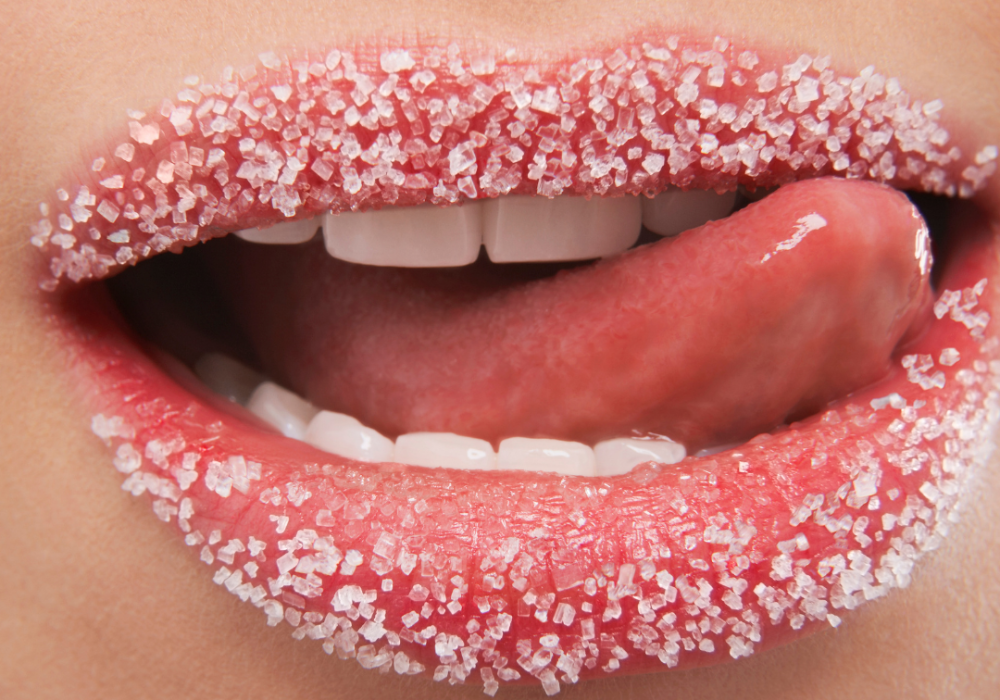I had absolutely no idea I was addicted to sugar until gave up drinking. I honestly did not know how much sugar I was consuming by drinking wine every day. More to the point, I had no idea what I was doing to my body. Yes, I knew the alcohol was a problem, I knew alcohol was toxic and I knew I had to stop. But the sugar? Wow, was I hit with massive cravings. Never before had I had a sweet tooth. I would never have thanked you for a slice of cake, I would much rather have a bag of crisps if you don’t mind (absolutely not understanding how much sugar is in a bag of crisps!! (‘big sigh’).
And so my journey began. I am sooooo grateful that my body told me in 2014, that it was not doing so well. Had I not found the lump in my breast I may not be here now writing this blog. If it were not for me being diagnosed with breast cancer, I may still be drinking the wine, smoking and drowning in my stressful job! I knew I had to heal my body and that was going to involve hard work – changing my lifestyle, my job, stopping drinking and smoking, becoming plant based AND cutting sugar out of my diet. You see, I found that sugar is linked to some cancers and in particular hormonal cancers like breast cancer. That is because sugar interferes hormones.
Sugar is highly addictive and of course this is why so many people struggle to stop eating it. Trying to stop can induce massive cravings much like those experienced by drug addicts or smokers. In fact there is some research which reports that sugar is more addictive than cocaine.
If you’re not sure if you are addicted, here are five ways to tell:
ONE – Reduced Sex Drive.
Sugar interferes with the endocrine system and as such disrupts the functioning of our hormones. High levels of sugar in the bloodstream can prevent the production of sex hormones. If you find you’re regularly ‘not in the mood’ then sugar could be the culprit. In men high blood sugar levels can lead to erectile dysfunction, so before you look to the viagra, take a look at your diet instead!

TWO – Insomnia.
Melatonin is our sleep hormone. In order to produce enough Melatonin to ensure a good night sleep, we first need to produce Seratonin which is our ‘happy hormone’. Contrary to popular belief, we produce most of our Seratonin in our gut and NOT in our brain. High levels of sugar in the gut can lead not only to digestive issues, cramping, bloating and gas, but can also reduce the amount of Seratonin produced. If this is low then our Melatonin will be low and thus, we are unable to sleep.
Another reason for not being to sleep well could be due to eating late in the evening. Eating at night means that the digestive system is still working. The liver also likes a good nights sleep and generally will begin winding down for the night at around 9pm. However, if you have eaten late the liver has no choice but to keep on working (to process all that sugar). This process will awaken the adrenals which circulate adrenalin and guess what? you’re wide awake!!
THREE – Low Mood and Irritability.
There has been some studies linking sugar to depression and even dementia. It is possible this is due to decreased dopamine sensitivity in the brain. Much like other addictions, the brain requires more and more sugar to gain the same pleasurable feeling. Other theories suggest that because the brain uses glucose as a fuel, when insulin resistance takes place, the brain is starved of glucose and over time this leads to Dementia and Alzheimer’s in some people.
Regardless, there is no doubt that the highs and lows of blood sugar levels correspond to our energy levels and thus our feelings. I have spoken to lots of ladies who report to me that they will deliberately go out in the car to buy sweet foods, or who will eat all of their children’s sweets. One lady told me she feels like she ‘cannot control her emotions’, that her cravings ‘get so bad, I feel like I am climbing the walls until I finally give in and eat something sweet’. Other ladies have reported feelings of shame and guilt.
FOUR – Candida.
Candida Albicans is a yeast that is found naturally in the body. When the body is in balance Candida does not cause any ill effects, however when out of balance a Candida overgrowth can occur causing distressing itchiness, soreness and discharge in the vaginal area (Thrush can also occur orally). Candida feeds off sugar therefore when there is an excess of sugar in the bloodstream, Candida has an increased food source, leading to overgrowth. Whilst Thrush can be caused by other things too, it is worth examining your diet if you suffer from regular bouts.

FIVE – Premature aging/sagging skin.
Glycation is a process whereby sugar molecules in the bloodstream attach to proteins and fats. This is commonly known as Glycation End Products or AGE for short. This causes inflamation and damage to fibres in connective tissues which can cause all kinds of problems, illness and conditions. This process cannot be stopped and is usually more noticeable through aging, however, the process can be accelerated through poor diet and sustained high blood sugar levels.
The ill-effects of Glycation can affect muscles, joints, cause cataracts, hardening of the arteries, nerve damage, loss of muscle flexibility, kidney and liver damage, vascular disease and aged skin.
Research into Type 2 Diabetes has found that people suffering this condition have significant or accelerated Glycation resulting in their body aging much faster that it otherwise would. One study found that diabetes can age the average heart by as much as 40 years!
The glycation process affects the skin by making the fibres hard and rigid, collagen elasticity reduces causing sagging and wrinkles. Skin may also appear dry, dull and grey or yellow.
Written by Jacqueline Carson DipHyp, GQHP, GHSC

